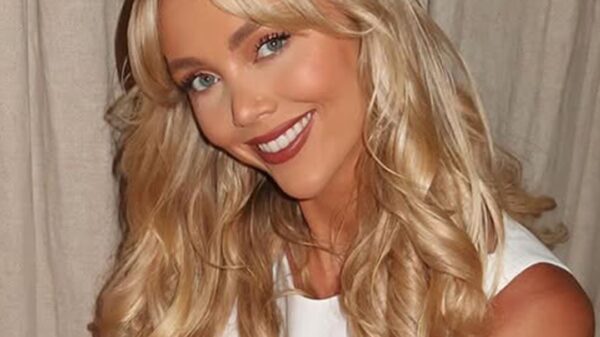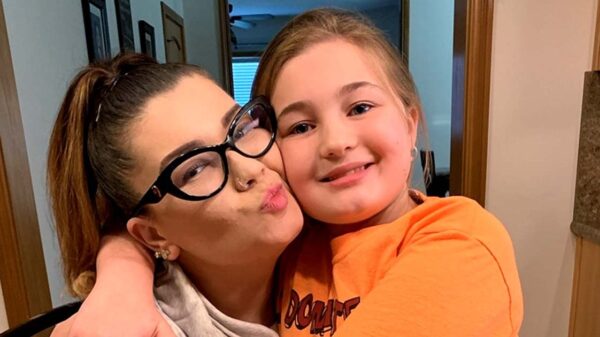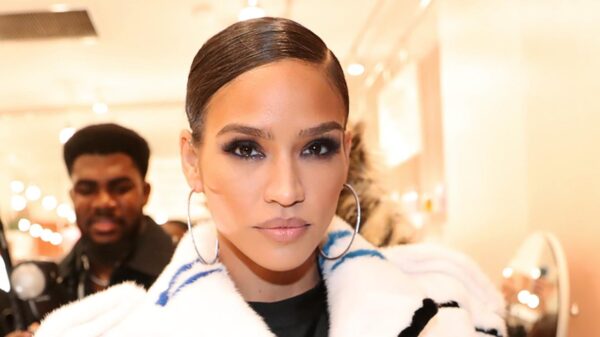Wedding planning can be stressful. Between finding the perfect dress, choosing a venue, and wrangling guest lists, even the most laid-back bride can feel overwhelmed. But for brides living with chronic illnesses like migraines or autoimmune disorders, that pressure multiplies. What’s supposed to be the happiest time of their lives often becomes a constant battle between what their bodies can withstand and the demands of the day.
Anna Konstantopoulos, a graduate student getting married in 2025, knows this struggle intimately. Diagnosed with Ehlers-Danlos Syndrome (EDS) at 15—a genetic disorder that affects connective tissue and, in her case, causes chronic migraines—she’s spent the past decade learning to manage symptoms that don’t always follow the rules.
“People confuse [migraines] with headaches and think, ‘Oh, it’s just a bit of throbbing in your head,’” Konstantopoulos says. “But for me, they always occur on the left side of my head and feel like a stake has just been driven through my left eye. I cannot stand any light or any sound. I just have to lie in a dark room.“
Mikaela Agnolin, a Miami-based real estate agent and another bride-to-be, knows that pain well — she’s been “dealing with migraines for about five years.”
For her, it feels like “a dull ache behind my eyes that builds into a throbbing pain on one side of my head. Sometimes it feels like a screwdriver is being drilled into the sides of my head.”
Living with an invisible illness like migraines often means being hyper-aware of one’s body. Konstantopoulos, for instance, keeps a Google Sheet full of her triggers, which help her try to manage the unpredictability of when a migraine might occur.
But even the most careful preparation can’t guarantee relief. Migraines can come on suddenly, and even the mildest ones leave both women unable to function. “Even the weakest ones I’ve had, I still can’t do anything,” Konstantopoulos says.
Her most severe episode lasted nearly two months and left her bedridden. “I had to drop out of school and was homebound. I could barely function,” she says.
Agnolin had a similar experience. She remembers having to leave her job after her illness started impacting her professional life. “I’ve had a few major instances at big work presentations in front of crowds that led to me having to stop in the middle of the presentation, which for me felt very embarrassing to explain,” she shares.
Despite the inherent challenges of their conditions, both Konstantopoulos and Agnolin are determined to enjoy their wedding days. But living with chronic illness means making accommodations and adjusting every decision to reduce the risk of a flare-up. That includes choosing a venue with soft lighting, scheduling moments to rest throughout the day, and briefing the bridal party on what to do if a migraine strikes.
It also means taking steps weeks before the wedding to prevent a flare-up. “I need to be extra cautious about the food I put in my body, eat, avoid strenuous exercise, and keep extra hydrated,” Agnolin says.
Konstantopoulos echoes this, adding that she’s going to be focused on prevention and being very clean with her diet leading up to the wedding. And if she does have a migraine on her big day, she’ll try her true-and-tried methods like eating sour gummy worms (she swears it works!) or wearing an ice pack. If it gets too bad, she’ll go to the ER and get a migraine cocktail.
Ultimately, though, when it comes to migraines, there’s only so much you can do. “They’re generally one of those things you don’t have any control over,” Konstantopoulos says. “It’s not something that’s just mind over matter.”
That’s why being open about migraines is important. Agnolin says she often feels guilty when her illness forces her to cancel plans or miss out on key moments. “There’s a lot of guilt and shame because you feel unreliable when you have to cancel, and I wish more people understood the invisible toll migraines take on your life and relationships,” she says.
“I have to think ahead about lighting at the venue, how much downtime I’ll need before the wedding, and how to manage overstimulation during the event,” Agnolin adds. “I’ve also had to say no to some pre-wedding events to protect my energy. It’s added another layer of stress.”
Just like any bride, there’s a lot that goes into one of the happiest days of your life — and having the support of friends and family through unpredictable moments is key to a memorable day, no matter what happens.
Read the full article here










































